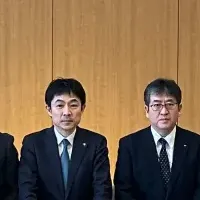
Saudi Arabia Takes Charge of Global Coral Reef Conservation Efforts with ICRI Secretariat Leadership
Saudi Arabia's Leadership in Coral Reef Conservation
On January 10, 2025, Saudi Arabia officially commenced its role as the Secretariat of the International Coral Reef Initiative (ICRI) for its 14th term. This pivotal moment in the realm of global coral reef conservation underscores the Kingdom's commitment to preserving these critical ecosystems. ICRI, comprising 102 members, including 45 nations that oversee 75% of the world’s coral reefs, plays a crucial role in promoting collaborative efforts to combat coral degradation.
The formalization of Saudi Arabia's presidency was announced during the ICRI's 38th General Assembly held in September 2024. The Kingdom took over the reins from the United States, pledging to drive forward initiatives that enhance coral reef resilience through innovative funding, AI monitoring technologies, and global cooperation.
The importance of coral reefs cannot be overstated; they support about 25% of marine biodiversity and contribute approximately $9.9 billion annually in ecosystem services and goods. With this leadership role, Saudi Arabia plans to implement the Action Plan for 2025-2027, which aims to expand ICRI’s membership to include countries representing 90% of the world’s coral reefs. It further emphasizes resilient management practices and the integration of coral conservation into global policy frameworks.
Key priorities under this action plan include boosting the blue economy, advancing reef monitoring through innovative technologies, and utilizing insights from the forthcoming "State of the World’s Coral Reefs 2025" report. Noteworthy initiatives also encompass launching the ICRI Youth Strategy and enhancing partnerships in the Red Sea, South Asia, and East Africa, while raising global awareness through major events like the UN Conference on Oceans.
This significant milestone reflects Saudi Arabia's rigorous commitment to sustainable management practices in line with its Vision 2030 goals. The Kingdom is also pursuing the National Strategy for Red Sea Sustainability, recently unveiled by Crown Prince Mohammed Bin Salman, which reinforces its dedication to conserving the unique marine ecosystems of the Red Sea and fostering a sustainable blue economy.
Dr. Khaled Asfahani, CEO of the General Organization for the Conservation of Coral Reefs and Turtles in the Red Sea (SHAMS) and Chair of ICRI, acknowledged the importance of this role: “Our stewardship of the ICRI signifies our unwavering commitment to a sustainable future for coral reefs worldwide. We are immensely grateful to ICRI members for their trust in appointing Saudi Arabia to lead this vital global initiative. Through this leadership, we aspire to set new benchmarks in coral conservation, leveraging science, innovation, and collaborative efforts to propel initiatives at national and international levels. Our ultimate aim is to safeguard these vital ecosystems, ensuring their resilience for future generations, while also maintaining their invaluable contributions to the global economy.”
About SHAMS
The General Organization for the Conservation of Coral Reefs and Turtles in the Red Sea (SHAMS) serves as the government body tasked with overseeing and ensuring the sustainable management of Saudi Arabia's unique coral reefs and marine turtle ecosystems, which are among the most resilient in the world. SHAMS leads innovative research, implements large-scale restoration projects, and develops sustainable management frameworks aimed at protecting these critical ecosystems.
For more information, visit http://shams.gov.sa.
About ICRI
The International Coral Reef Initiative (ICRI) is a global alliance of nations and organizations dedicated to preserving coral reefs and related ecosystems worldwide. Founded in 1994, the initiative has grown into a network of 102 members, including 45 countries that collectively represent over 75% of the world’s coral reefs. For more details, please visit www.icriforum.org.
Topics Environment)










【About Using Articles】
You can freely use the title and article content by linking to the page where the article is posted.
※ Images cannot be used.
【About Links】
Links are free to use.